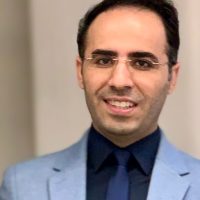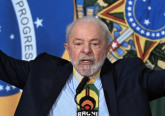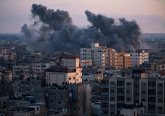Kurdistan’s overdue parliamentary elections are set to take place on 6 June 2024. Judging by previous election cycles, however, their occurrence relies on a precarious political balancing act, with unpromising prospects.
Kurds across Kurdistan have managed to safeguard stability, security, and thriving economies, standing in stark contrast to the mayhem and violence that characterises the wider region. Yet, creating a democratic island amid the turmoil of the Middle East has been profoundly challenging. Democratic elections are one of the key routes to achieving this objective.
Introduction
More than a centenary has passed since Kurdistan, the homeland of the Kurds, was partitioned. The prospect of an independent Kurdistan followed the collapse of the Ottoman Empire in the aftermath of World War I. The Treaty of Sèvres (10 August 1920) initially promised the Kurds local autonomy and eventual independence within a year. The Allies, however, backtracked, and the Sèvres Treaty was ultimately nullified by the Treaty of Lausanne (23 July 1923), thwarting the realisation of a sovereign state of Kurdistan.
Subsequently, the Kurds were divided among the states of Iran, Iraq, Syria, Turkey, and the Soviet Union. Stalin’s regime led to the dissolution of ‘Red Kurdistan’ (Kurdistanskii uezd), which was then integrated into Azerbaijan in 1930. Kurdistan’s fragmentation was exacerbated by the deportations of Kurds to other Soviet republics, resulting in a contiguous region divided among only four states. More broadly, the absence of a sovereign Kurdistan can be traced to the imperialist policies and economic reordering of the Allied Powers, particularly Britain, France, and Russia. After resolving the Mosul vilayet case, the tripartite Treaty of Angora (5 June 1926) incorporated Southern Kurdistan into Iraq, prompting a boundary to be demarcated between Iraq and Turkey, in accordance with Britain’s strategic interests.
Through the imposition of Fars (Persian), Turkish, and Arab ethnic identities, coupled with the denial of Kurdish identity and the Kurds’ homeland, these states have consolidated control over governance, managing Kurdistan’s affairs. The political destiny of the Kurds was relinquished to exogeneous states, perpetuating systemic oppression that persists in Iran, Syria, and Turkey.
The Kurdistan Regional Government
After Saddam Hussein’s ousting from the South of Kurdistan (known as Başûr) in 1990, then Kurds found a brief reprieve from Iraqi state oppression. However, the Ba‘athist regime’s retaliation with killings of Kurdish civilians led to the UN Security Council Resolution 688 on 5 April 1991, establishing a no-fly zone to protect the Kurds. Accordingly, Iraq lost control over the region in October 1991, enabling the establishment of the Kurdish Autonomous Area. Despite a full-fledged state blockade, the first multiparty elections for the National Assembly and presidency were peacefully conducted on 19 May 1992.
After the regime’s downfall in 2003 and the enactment of a Transitional Administrative Law in March 2004 to establish federalism in Iraq, Iraq’s constitution was ratified in October 2005, recognising the Kurdistan Regional Government (KRG) as per Article 116. The KRG — run by a parliamentary system (Article 1 of the KRG Constitution) — operates under its own constitution, allowing it to govern its territory and the people independently. It endorsed the Provisional Constitution of the Federal Republic of Kurdistan in June 2009, with an established parliament representing all parties giving its approval, yet the constitutional referendum is pending.
Roadblocks to Elections Proceedings
Several general elections have occurred since then, in 1992, 2005, 2009, and 2013. However, the onslaught of ISIS and budget cuts imposed by Baghdad in 2014 resulted in intermittent and severe financial and social crises for the KRG. These challenges endure to the present day, with the agreed-upon budget share of 12.6% being obstructed, leading to recurrent suspensions of wages in Başûr due to halted funds from the Iraqi state. Moreover, the parliamentary elections, initially planned for November 2017, were postponed to September 2018. The planned date for the sixth round was shifted to October 2022, yet discord among political parties over Kurdistan’s election law prompted another postponement to November 2023. Following the ruling by the Iraqi Supreme Court (ISC) opposing the self-extension of the Kurdistan parliament, the elections were rescheduled for 25 February 2024.
With the aim of undermining Kurdish autonomy, the ISC issued another ruling just four days before the designated date concerning the composition of parliament, revoking the Kurdistan parliament’s minority quota as “unconstitutional” and stating that the parliament “consists of one hundred members,” including five seats for minorities. This nullified the legitimacy of the legislature’s 11 minority seats (allocated to Turkmens, Assyrians, Chaldeans, Syriacs, and Armenians) under Kurdistan’s election law, passed in 1992 and amended in 2013. Politicians from the Kurdistan Patriotic Union (PUK) and a Christian party in Slêmanî filed the lawsuit.
As per the ruling, Iraq’s Independent High Electoral Commission (IHEC) will take over the management of the Kurdistan Region’s elections until a new regional commission is established by the elected Kurdistan parliament. The past elections were overseen by the Kurdistan Region’s electoral commission, predominantly controlled by representatives from the PUK and the Kurdistan Democratic Party (KDP). Moreover, it declared Kurdistan’s single-constituency electoral system “unconstitutional,” requiring the reorganisation of the Region into “at least four electoral constituencies” with “at least three women” as candidates from each political party in elections. Consequently, the ruling further pushed the parliamentary elections to 10 June 2024.
The KDP, holding power in Hewlêr (the KRG capital) and closely tied with Turkey, denounced the ruling as unconstitutional. It announced the intention to boycott the elections, criticising the court for meddling in Kurdistan’s affairs through an externally imposed system. However, the KDP later clarified that it is not boycotting the electoral process and would participate in parliamentary polls contingent upon them being conducted fairly and transparently. The removal of minority seats will result in fewer seats for the KDP, as they previously relied on these seats to bolster their representation in parliament and secure a stronger position in governance. The KDP suspected Iranian influence behind the court’s rulings. Conversely, the PUK, aligned with the Iranian regime, commended the decision.
The ISC, responding to a lawsuit from the New Generation Movement party, had previously mandated the dissolution of the Kurdistan parliament in May 2023 due to the expiration of its electoral mandate and failure to conduct new elections, invalidating all laws passed during that period. Disputes between the two main parties, the KDP and the PUK, led to the parliament extending its mandate for another year.
The most recent ruling from the ISC on 7 May 2024 ordered a temporary suspension of preparations for the Kurdistan’s June parliamentary elections. This decision came in response to a lawsuit filed by KRG Prime Minister Masrour Barzani against the head of the IHEC, alleging a violation of the Iraqi constitution. The lawsuit challenges the fairness and legality of the electoral system, particularly contesting the method of allocating parliamentary seats based on voter numbers rather than population figures (as stipulated in Article 49 of the 2005 Iraqi Constitution). Additionally, it objects to the removal of minority seats, arguing that this contravenes the principle of equitable representation for all of Iraq’s communities as outlined in the constitution. The PUK countered the injunction by filing a counter-suit. The ISC rejected PM’s lawsuit on 21 May.
While this stance does not officially delay the June elections, it significantly diminishes the likelihood of holding them as scheduled — particularly with the potential absence of KDP participation — rendering the possibility remote. More importantly, it brings the democratic process in Başûr to a halt and places the KRG in the midst of an intricate political dilemma. The undermining rulings of the ISC concerning KRG’s autonomy and the excessive influence of the ruling parties in preventing elections from taking place and swaying voters raise questions about the democratic integrity of such elections. Consequences are inevitable.
Ramifications of Postponed Polls
Amidst the tumult of the past three decades in the Middle East, Kurds in both the South and the West of Kurdistan, also known as Rojava (in Syria), have forged a path of stability, security, and economic prosperity. Unlike the chaos prevalent in neighbouring states, Kurdish administrations have demonstrated remarkable governance effectiveness. Yet, these achievements have not come at a cost, as Kurds have paid a steep price in their quest for rightful recognition of their sovereignty.
To ensure staying within the rail of stability and prosperity, the Kurds must steer clear of renewed inter-party conflicts and address the ongoing barriers impeding the holding of elections. Stability plays a crucial role in attracting foreign investments and fostering tourism. The dominance of state institutions and the security forces by the ruling parties have left Kurds in the KRG disheartened, as democratic principles struggle to flourish. The Kurds, across Greater Kurdistan, held high hopes for the success of this Kurdish de facto state. The ramifications of maintaining the present state of affairs are profound for the Kurds, with expectations of significantly low voter turnout reflecting dissatisfaction with the ongoing situation in the KRG and its diminished efficacy in fulfilling state functions.
The actions of the KRG are closely monitored by international missions based in Hewlêr, including representatives from the US, the UK, and other European consulates that advocate for and uphold democratic values. The status quo’s persistence has already sparked concerns about the legitimacy of government institutions. The KRG cabinet is currently serving in a caretaker capacity, and the parliament is not in session. Their mandate requires renewal. The restoration of democratic legitimacy should stem from the populace, rather than international support or interventions by Iran and Turkey, seeking to extend their influence over the KRG’s territory.
Preserving democratic principles in such a climate would prove to be highly improbable given the prevailing circumstances. In such a climate, accountability — a cornerstone of democracy — is not guaranteed for those who abstain from or obstruct elections.
Ensuring the fairness and freedom of the elections — should they occur — is paramount. International observers can fortify the integrity, transparency, and credibility of the electoral process, cultivating accountability and instilling voter confidence. Their presence safeguards against undue influence, reinforcing democratic principles crucial for free and fair elections.
Note: This article reflects the views of the author and not the position of the DPIR or the University of Oxford.





